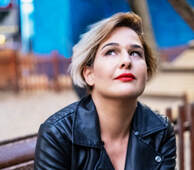Prohibited to you [for marriage] are your mothers, your daughters, your sisters, your father's sisters,
your mother's sisters, your brother's daughters, your sister's daughters, your [milk] mothers who nursed you,
your sisters through nursing, your wives' mothers, and your step-daughters under your guardianship [born]
of your wives unto whom you have gone in. But if you have not gone in unto them, there is no sin upon you.
And [also prohibited are] the wives of your sons who are from your [own] loins, and that you take
[in marriage] two sisters simultaneously, except for what has already occurred.
Indeed, Allah is ever Forgiving and Merciful.
Surah An-Nisa, 4:23 Quran
your mother's sisters, your brother's daughters, your sister's daughters, your [milk] mothers who nursed you,
your sisters through nursing, your wives' mothers, and your step-daughters under your guardianship [born]
of your wives unto whom you have gone in. But if you have not gone in unto them, there is no sin upon you.
And [also prohibited are] the wives of your sons who are from your [own] loins, and that you take
[in marriage] two sisters simultaneously, except for what has already occurred.
Indeed, Allah is ever Forgiving and Merciful.
Surah An-Nisa, 4:23 Quran

